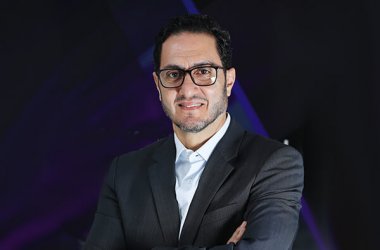 Charles Giancarlo spent more than a decade at Cisco Systems and was widely considered a likely heir to Chairman and CEO John Chambers before he left last year for investment company Silver Lake Partners. Then Silver Lake orchestrated a private-equity buyout of Cisco rival Avaya, and Giancarlo stepped in as interim president and CEO. In January, former JDS Uniphase chief Kevin Kennedy will take over day-to-day operations as president and CEO, and Giancarlo will become chairman. Stephen Lawson of the IDG News Service spoke with Giancarlo recently after he delivered the opening keynote at VoiceCon in San Francisco.
Charles Giancarlo spent more than a decade at Cisco Systems and was widely considered a likely heir to Chairman and CEO John Chambers before he left last year for investment company Silver Lake Partners. Then Silver Lake orchestrated a private-equity buyout of Cisco rival Avaya, and Giancarlo stepped in as interim president and CEO. In January, former JDS Uniphase chief Kevin Kennedy will take over day-to-day operations as president and CEO, and Giancarlo will become chairman. Stephen Lawson of the IDG News Service spoke with Giancarlo recently after he delivered the opening keynote at VoiceCon in San Francisco.
IDG News Service: You've said that Avaya is committed to standards, but also that cutting-edge development takes place in advance of standards. What is Avaya's real position here?
Charles Giancarlo: There are two aberrations from a strict adherence to that rule. One aberration is that in the early phase of any new technology, no standard exists. Does it mean that you don't push the envelope in terms of new technology? No. Our goal is standards. And even though, on a temporary basis, we're not going to stop progress for lack of a standard, it doesn't mean that we're not committed to standards. It just takes a little bit of time. The second aberration is in certain areas where customers just don't care. Even in an open environment, let's say Linux, there are quasi-proprietary areas where no one really cares about making it standardized. [Where different vendors' products are unlikely to come together.] Focusing on standards where customers care about standards is important.
IDGNS: What do you think Kennedy is going to bring to the picture? Some people wonder why you didn't go with someone who had more of a software background.
Giancarlo: One is that he actually worked at what was Avaya when it was part of AT&T. So he understands the culture, understands the business overall. Two is that he's very familiar with the enterprise communications business [from] not only his work that was here, but his work at Cisco as well. Three is, we're entering a difficult economic period, regardless of our individual capabilities, and Kevin has managed through a very difficult downturn that occurred in the telecom industry in 2000, 2001, 2002.
We can bring in software expertise in the development area, but at the end of the day, this is a systems business. A systems business is software, hardware and services mixed together. And in fact, our development today is probably about 65 percent to 70 percent software development. That being said, at the end of the day, the customers want to be able to make phone calls or [collaborate]. Whether it's software, hardware, or, you know, feathers. They could care less. What they want is their capability, which is a systems business.
IDGNS: An Avaya customer at the keynote said he thought Avaya still thinks of itself as a phone-switch maker. Do you agree that there's a migration that has to happen there?
Giancarlo: I do. Avaya evolved out of what was a very labs-oriented culture — Bell Labs — where the environment was that they were a regulated monopoly and where the fundamental belief was that brilliant people in white lab coats think of great new technology. I'm generalizing. But the world has evolved quite a bit, and … the customers have many more choices today. And therefore you can't just focus on the technology, you have to focus on the effect of the technology on the customer.
IDGNS: You said this morning that the demands on unified communications have changed from network-oriented ones, such as cost-cutting, to the employees' productivity needs. Has Cisco responded to that change in requirements differently from Avaya?
Giancarlo: Cisco has some very good strengths, but part of that strength is that their customer base are the network operators. And from an organizational structure in the company, the focus is on the integration with the network. I certainly took advantage of that, and in fact, that's what you want to take advantage of as Cisco, is the integration and the synergies that you get, technical and otherwise, by integrating into the rest of the network. It's a great strategy. But it prevents them from executing on other good strategies. Microsoft, to name another one, is going to focus on the IT department. That's their power base. And the synergies that they can bring are by integration into the application base, or maybe into the desktop.
What's important for Avaya is that we not only bring a strong value proposition but that we bring a unique value proposition … and into a constituency that matters. Business users are now much more empowered and much freer to either make demands or, in some cases, even choose the technology quite independently. And I do believe that our industry has underserved, in general, those business users. Our opportunity as Avaya is to transform at least part of the market by focusing in on those business users.
Read more:
http://www.networkworld.com/news/2008/111508-efficiency-key-to-avayas-success.html





